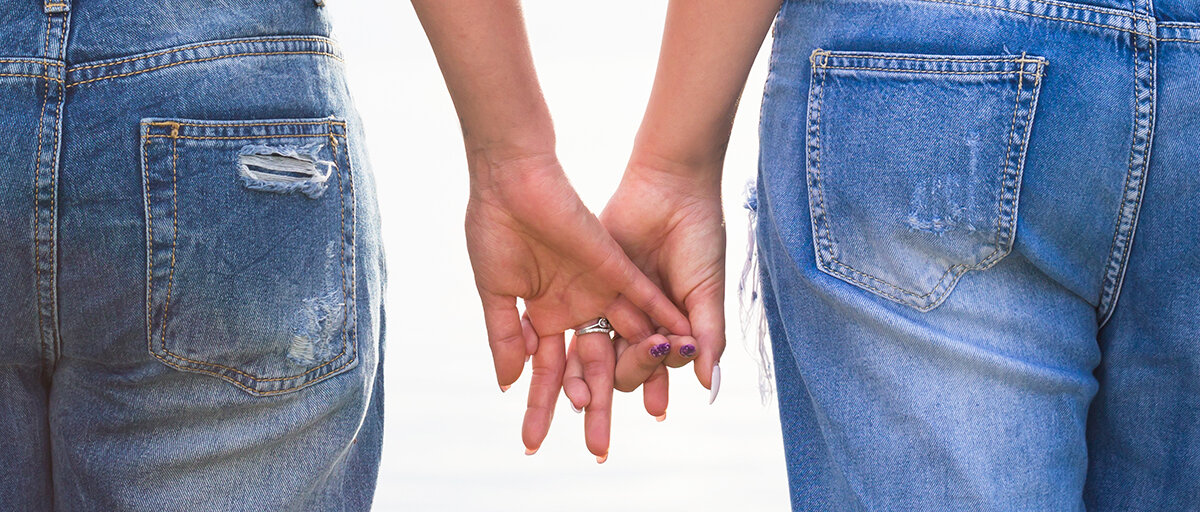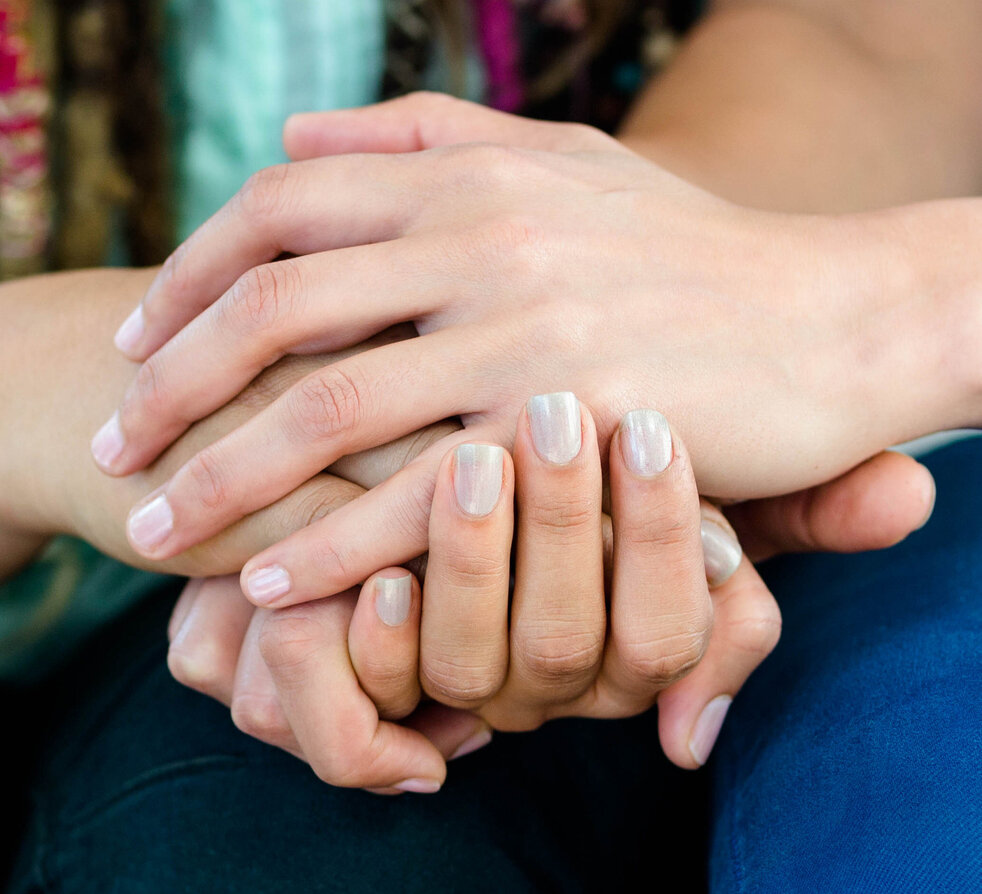By FLO
“Even the smallest of things – pronouns – could blindside us
with crippling force. ”

I’LL NEVER FORGET…
…the day my husband died. His body still lived with me. No, it wasn’t a zombie situation. A year into our 15-year marriage, my husband died to become my wife. Changing to become the woman she was inside was a major life transition for both of us. It wasn’t easy.
Early in our relationship he carried around a combination of pain, depression, fear, and self-loathing. I assumed it was PTSD from his time in the military. He drank heavily, often triggering suicidal thoughts. I was afraid for him on that constant emotional rollercoaster.
He sometimes wore women’s underwear before we married – that was okay by me – it lent a little spice to our love life. One day after we married, she wore an entire outfit. I thought it was a sex game. She was testing the waters. She wore women’s clothes more and more often. Then, on a sunny day in our kitchen she told me she felt like a woman. I didn’t quite get what she meant.
I was on a business trip in Australia. I had called her, like I did every day on a long trip far away. She told me that she was going to put on female clothes and a wig and walk around the neighborhood with one of our dogs. Half a world away, it hit me – my husband had died.
I BELIEVED SHE SHOULD TRANSITION
No one should spend their life trying to be something they aren’t. I had some inkling of what that was like from my previous marriage when I tried to be the perfect Southern belle even though I was a Northeastern farm girl. I believed it intellectually when the grief hit.
I didn’t realize at first that I was grieving – despite having recovered the grief from a miscarriage of our miracle baby a few months before. Despite the fact that my spouse was still standing right in front of me, the role in society and life that I had of a mostly heterosexual, wife of a husband ended abruptly. The rosy dreams that went with that had died. I had to grieve that and go through the stages of grief.
The first stage, denial, came when she first told me on that day in our kitchen. The anger stage had my heart was screaming, “You can’t do this to me!” The bargaining started with “maybe you could dress only sometimes.” The fourth stage, depression, had me blaming myself for the “mess” my life had become – because surely this was a punishment for leaving the husband I had been separated from when I met her.
Like any marriage crisis, it was as devastating as being in a hurricane. Even the smallest of things – pronouns – could blindside us with crippling force. So many changes occurred: hormones, surgeries, wardrobes, shoes, names, our married life, our relationship, and how the world perceived us. The thing that made it hardest was going through it alone. My friends didn’t help or even try to understand my grief when they would have if her body died too.

The acceptance stage finally came…
…when I recognized amid all the changes, the fights, the grief, and the tears that her eyes were still a beautiful blue that lit up when she saw me. That when she held me, her strength and love calmed and comforted me. That her sense of humor was just as quirky and in tune with mine as the day we met. Most of all, that her love for me had grown into the space where her deep secrets used to live.
Despite the grief, the obstacles, the lack of support, and the hard work required, we not only survived transition – we came through it stronger, more connected, and more in love than the day we married 15 years ago. Now, we are an “old married couple.” My husband died. My wife is more amazing and precious to me than he could ever have been.
